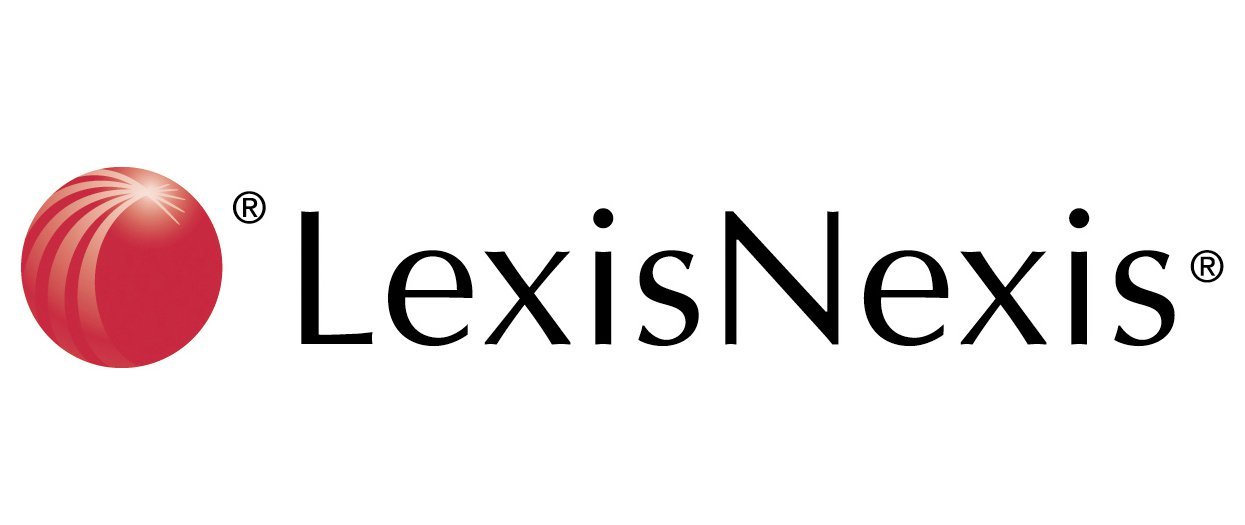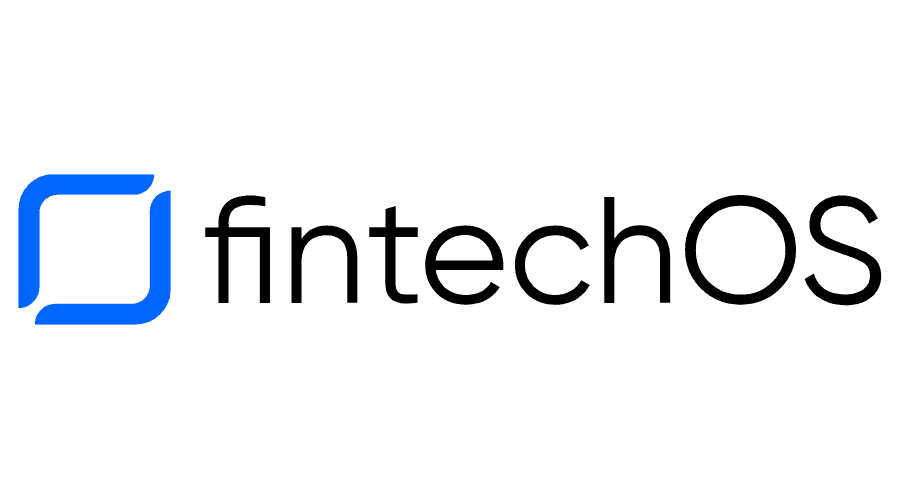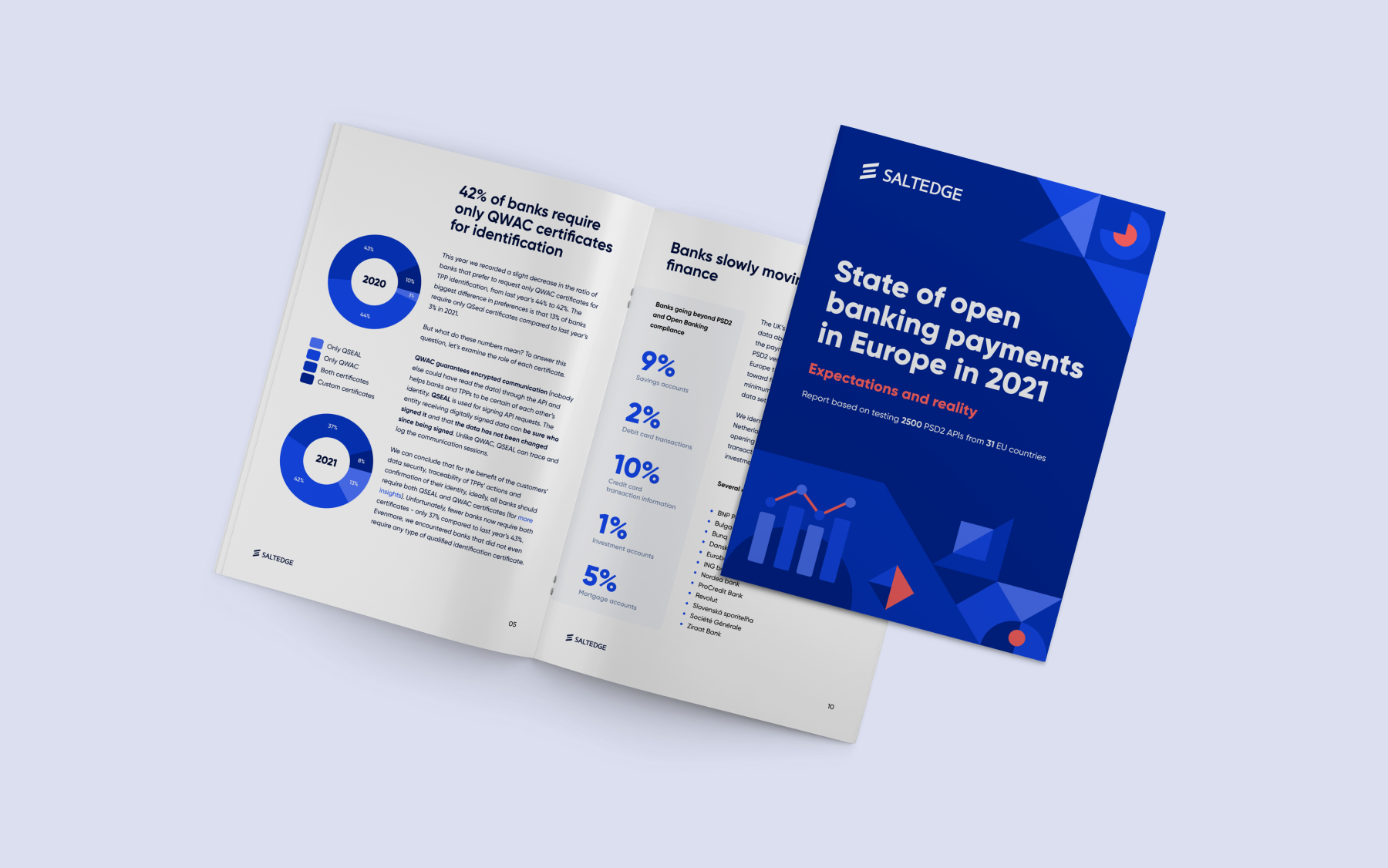Published

Matthew O’Neill
Industry Managing Director at VMware EMEA
The financial services industry has lost its mojo. There was a time – in the not-too-distant past – where it was the place to work. see more
- 02:00 am

Paysend, the next-generation payment platform enabling customers and businesses all around the world to pay, hold and send money online anywhere, anyhow and in any currency, is now available to all Canadians.
After completing a successful beta phase, Canadians can now use Paysend to send money internationally to over 120 countries. Featuring a quick and efficient on-boarding process, Paysend offers fast transfers, competitive exchange rates, and low and transparent fixed fees (only $3), making it a great solution for Canadian immigrants, students, temporary workers and expats. Canadians can also now receive more funds in their bank accounts, working with over 250 participating financial institutions with the ability to receive up to $10,000 CAD to a bank account in Canada.
“Canada is among the most immigrant-reliant advanced economies in the world,” said Ronald Millar, CEO, Paysend. “Currently, net migration accounts for more than 80% of Canada’s population growth, with many of these individuals regularly sending money to their families back home.”
Mr. Millar added, “Launching Paysend in Canada marks a major milestone in our global expansion initiatives. We are proud to provide Canadians with tools that make taking care of their families, even when they are apart, seamless and simple.”
Earlier this year, Paysend secured $125 million in a Series B funding round to accelerate the company’s global expansion. The company is changing the way people manage their money on a global scale. Paysend does this through the power of its technology and the passion of its team. The company offers solutions that are safe, fast, convenient and smart, and simplify the complexities of money so customers can focus on the things that really matter.
“At Paysend, we believe that money matters,” said Timur Shomansurov, Country Manager of Paysend in Canada. “Our customers work hard to earn money for themselves, their friends and families, but earning money is hard and saving it is even harder. Helping people is at the heart of what we do. Together, our team is committed to a shared mission – saving our customers time and money, and creating money for the future. We look forward to making these options available to all Canadians and providing a cost-effective money transfer service that is both convenient and accessible.”
Related News
- 09:00 am

● Proven as only choice for high-volume institutional client flow
● Unique infrastructure gives first mover advantage for institutional business
● Adds another significant high volume business to its pipeline
Nukkleus Inc has partnered with Monogram Network, a leading public ledger blockchain, supporting the issuance of their MG Token. This exclusive partnership via crypto firm Digital RFQ Limited is another step forward in providing institutional investors with the security they need to enter the crypto market and benefit from the performance of digital assets and crypto payments.
The MG Token represents an interest in appreciating global assets with plans to expand into renewable energy and real estate. Investors will be able to leverage the Monogram Network with immutable logging, tracking, and tracing of maturing real world assets. The token will be facilitated through Digital RFQ, ensuring all payouts are made to MG Token holders in a highly secure and efficient manner.
Whilst crypto has gained momentum in unregulated retail markets over the past decade, institutional investors have faced numerous risk, technology and banking infrastructure barriers. Digital RFQ’s services overcome these hurdles, representing the only UK institutional focused crypto firm that is registered with the Financial Conduct Authority (FCA) for the handling of client money.
“From the outset, Digital RFQ's strategy has been to service institutional clients only. For that reason we spent years establishing the appropriate infrastructure and regulated fiat capabilities to support institutional size volume for cross border payments, all the time, addressing the risks associated with cryptocurrencies. Today that hard work is paying off with corporate client contracts being signed with prestigious firms like Monogram. With our client volumes increasing through partnerships like Monogram, we will naturally start considering our options to uplist and entertain acquisition opportunities that strengthen and extend our crypto footprint globally" commented Jamie Khurshid, COO, Nukkleus.
Monogram CEO Debra Domeyer said: “We are delighted to be working with the team at Digital RFQ to facilitate our Monogram Token payments. Unlike other crypto platforms focused on small retail flow, the team at Digital RFQ, with their backgrounds in tier one investment banks and brokers, clearly understand what it takes to securely move and settle the sort of volumes we need for our investments. This is an unmatched service in institutional crypto.”
Match Financial, recently acquired by Nukkleus, operates six crypto product lines through Digital RFQ. The Monogram partnership benefits from the second and third product outlined below:
1. NFT: Partnering with leading UK auction houses for 24-hour auction price-fixing to safely sell high end digital art with the real world physical assets of our tier one customers.
2. Fiat to Crypto: Acquiring cryptocurrencies, DeFi and securities token investments with deep liquidity through partnerships with global exchanges and brokers.
3. Crypto to fiat: Offering UK FCA regulated fiat gateways and a full suite of global institutional crypto banking services with capacity that exceeds $50m daily.
4. Card Payments: Providing multi-currency and multi-token wallet management for a convertible crypto debit card at any point of sale using MasterCard and Visa.
5. Remittance: Facilitating cross-border fiat-to-fiat payments, completed within 30-60 minutes using our unique crypto rails that deliver an incredibly efficient, superior and cost-effective alternative.
6. NGO Services: Fulfilling social responsibility by providing humanitarian aid and disaster relief.
For further information: https://digitalrfq.com/
Related News
- 03:00 am

Sophos, a global leader in next-generation cybersecurity, today announced findings from its survey report, “The State of Ransomware in Financial Services 2021,” that show how mid-sized financial services organizations worldwide spent more than $2 million on average recovering from a ransomware attack. This figure exceeds the global average of $1.85 million, even though the results also show the financial sector is among the most resilient against ransomware. Nearly two-thirds (62%) of victims surveyed in this sector were able to restore their encrypted data from backups. The survey studied the extent and impact of ransomware attacks during 2020.
Other findings include:
· 34% of the financial services organizations surveyed were hit by ransomware in 2020
· 51% of the organizations impacted said the attackers succeeded in encrypting their data
· Only 25% paid the ransom demanded to get their encrypted data back. This is the second lowest payment rate of all industries surveyed. The global average was 32%
Financial services is among the most highly regulated industries in the world. Organizations must adhere to myriad regulations, including SOX, GDPR, and PCI DSS, that include pricey penalties for non-compliance and data breaches. Many of these organizations are also required to prepare business continuity and disaster recovery plans to minimize any potential damage from data breaches or operational disruptions stemming from a cyberattack.
“Strict guidelines in the financial services sector encourage strong defenses,” said John Shier, senior security advisor, Sophos. “Unfortunately, they also mean that a direct hit with ransomware is likely to be very costly for targeted organizations. If you add up the price of regulatory fines, rebuilding IT systems and stabilizing brand reputation, especially if customer data is lost, you can see why the survey found that recovery costs for mid-sized financial services organizations hit by ransomware in 2020 were in excess of $2 million.
“Two other slightly worrying data points are the fact that a small, but significant, 8% of financial services organizations experienced what are known as ‘extortion’ attacks, where data is not encrypted, but stolen and victims are threatened with the online publication of their data unless they pay the ransom. Backups cannot protect against this risk, so financial services organizations should not rely on them as an anti-extortion defense. Further, 11% of the financial organizations surveyed believe they won’t get hit because they are ‘not a target.’ This is a dangerous perception because anyone can be a target. The best approach is to assume you will be a target and to build your defenses accordingly.”
Of the financial services organizations that believe they’ll be hit by ransomware in the future, 47% said this is because attacks are now so sophisticated they have become harder to stop. Forty-five percent feel they’ll become a target because other organizations in their industry have already been targeted with ransomware. Forty percent believe that since ransomware is so prevalent, it is inevitable they’ll get hit by the cybercrime.
“The financial sector has too much at stake to not set up an indepth defensive plan to protect, dectect and block cyberattackers,” said Shier. “While they should continue to invest in backups and their disaster recovery efforts to minimize the impact of an attack, they should also look to extend their anti-ransomware defenses by combining technology with human-led threat hunting to neutralize today’s advanced human-led cyberattacks.”
The “Sate of Ransomware in Financial Services 2021” report is available on Sophos.com.
The State of Ransomware in Financial Services 2021 survey polled 5,400 IT decision makers, including 550 in financial services organizations, in 30 countries across Europe, the Americas, Asia-Pacific and Central Asia, the Middle East, and Africa.
Related News
- 08:00 am

Digital Transformation throughout the World Continues to Drive Transaction Growth and Fraudulent Activity
LexisNexis® Risk Solutions today released the findings of its latest Cybercrime Report, which covers the first half of 2021. This edition of the biannual report reveals that bot attack volumes grew 41% year over year with human-initiated attacks falling 29%. The report confirms earlier trend patterns showing the financial services industry and media businesses bear the brunt of increased automated bot network attacks.
The Cybercrime Report is an analysis of transaction data from the LexisNexis® Digital Identity Network®. It analyzed 28.7 billion transactions over the six-month period, up 28% year on year, attributed to increased transaction volumes from existing customers and an increased customer base within the Digital Identity Network®. The increased shift to digital payments seen across advanced economies during the pandemic appears to be a permanent change, while accelerated digital transformation in emerging economies and industries continue to drive transaction growth as well as catch the attention of fraudsters.
The first half of 2021 saw geographical shifts in attack volumes observed across transactions occurring within the Digital Identity Network. Based on bot IP addresses, Mexico joins Brazil on the top ten list of largest originators of bot attacks by volume, further establishing Latin America (LATAM) as a hotspot for both automated and human-initiated attacks. Attack rates originating from North America and Europe, Middle East and Africa (EMEA) have historically been similar and lower than the other regions. Since March 2021, however, North America recorded higher daily attack rates that now exceed those in EMEA, marking a sustained change in cybercriminal behavior in the U.S. and Canada, which may be linked to an earlier transition towards a post-pandemic world.
Key findings from The LexisNexis® Risk Solutions Cybercrime Report, January to June 2021:
- Bot attacks increase globally – All regions have recorded growth in bot volumes between January-June 2021 in comparison to the same period last year. This was most marked in the Asia Pacific (APAC) and LATAM regions, with EMEA experiencing the smallest growth.
- Industry innovations altered risk profiles – The online payment market continues to proliferate and diversify. Buy now pay later (BNPL) services and digital wallets are becoming an increasingly popular payment method, with BNPL transactions growing 182% year-over-year. This growth is likely to continue as it caters to the increasing population of consumers who are transacting more online. However, it also creates new avenues of attack for cybercriminals.
- Financial services institutions deployed new methods to track money mules – Advances in beneficiary intelligence within the Digital Identity Network are making it less complicated for banks and other payment service providers to track payment transfers involved in money mule activity. This includes when the beneficiary tries to hide their tracks by splitting the initial payment and routing it via other entities in the payment network.
Download a copy of the LexisNexis Risk Solutions Cybercrime Report, January through June 2021. Join Stephen Topliss in a global webinar on Tuesday September 14th, 4pm BST, when he will highlight the latest Cybercrime Report findings.
Related News
- 03:00 am

Introduces Secure and Automated Way to Ensure All Source Code Entering GitHub, GitLab, and Bitbucket Repositories is Signed by a Developer With a Validated Corporate Identity
Passwordless MFA provider Beyond Identity today announced a groundbreaking solution that closes a critical vulnerability and secures the software supply chain against insider threats and malicious attacks. Beyond Identity’s new Secure DevOps product establishes a simple, secure, and automated way to confirm that all source code entering a corporate repository and processed by the continuous integration/continuous deployment (CI/CD) pipeline is signed by a key that is cryptographically bound to a corporate identity and device. This ensures trust, integrity, and auditability for every piece of source code that is built into the end software product.
As software development moved to the cloud, the build environment became an attractive target for malicious actors looking to establish deep and broad compromise within organizations. From SolarWinds to Kaseya, the vulnerability of the software supply chain and the potential for damage has never been more clear or urgent. However, the speed and highly distributed nature of agile software development processes resists tighter security controls. Today, it is virtually impossible to track source code provenance because developers often don’t sign source code committed to corporate repositories, and those that do typically use keys tied to a personal identity rather than a validated corporate identity. Currently, source code signing is highly manual and requires centralized key management, where key sprawl is high, and keys cannot be trusted because they can be moved from one device to another. While signing binaries exiting the CI/CD pipeline is common practice, this only ensures that production code was built by the organization and leaves the earlier part of the process vulnerable to a rogue engineer or adversary.
“Agile software development accelerated the speed of innovation and changed the game for so many companies,” said Johnathan Hunt, Vice President of Security at GitLab. “We believe that by using a single DevOps platform like GitLab that embeds security early within every stage of the DevOps lifecycle, developers can reduce regressive rework and minimize vulnerabilities. We appreciate the value that Beyond Identity brings in further fortifying the security of source code commits and protecting against malicious code injection.”
Beyond Identity’s revolutionary solution ensures source code signing keys are trustworthy by tying them explicitly to a corporate identity and a specific device. With an extremely easy, one-time setup for engineers and DevSecOps teams, the solution creates unmovable GPG keys that are bound to, and secured in hardware enclaves on, work-issued systems. This also enables greater centralized control and key revocation. Doing so allows complete tracking of source code provenance for the purposes of QA and forensic audit. In the past, key management as a service required developers to manage keys themselves, without consistent, secure storage, leaving open the risky behavior of moving keys to multiple devices with relative ease.
“As a business that is cloud-based, the Beyond Identity authentication approach was a no-brainer for us,” said Mario Duarte, Vice President of Security at Snowflake. “As I looked closer at their innovative architecture, I saw instant applicability, and huge value specifically, with source code signing and GitHub. It was a perfect opportunity to work with Beyond Identity to design a product that’s tailor-made to address these security concerns.”
“Waiting until after the build to sign code, while easier, is like signing a contract without reviewing the fine print,” said TJ Jermoluk, CEO of Beyond Identity. “Much like a contract, the devil is buried in the details among multiple developers and a multitude of source code commits. And as we’ve seen recently, malicious injections can evade detection for years and compromise multiple companies – regardless of the strength of their organizational security posture. As we’ve done with our Secure Work product, taking the risk – and burden – of passwords and signing keys out of users’ hands not only greatly improves security, but also greatly accelerates access and productivity.”
To learn more about Beyond Identity’s Secure DevOps product, please visit: https://www.beyondidentity.com/blog/introducing-code-commit-signing-secure-your-sdlc
Related News
- 02:00 am

The Green Bonds market is slightly over a decade old, and its growth has gained pace recently. Compared to 2019, the Green Bonds market increased by USD 290bn in 2020, which represents a 9% increase in new issuances, according to a report by the Climate Bonds Initiative (CBI). Solactive is pleased to announce that Lyxor Asset Management launched its Lyxor Corporate Green Bond (DR) UCITS ETF tracking the Solactive EUR USD IG Corporate Green Bond TR Index. The ETF enables investors to align their corporate bond portfolio with net-zero goals by adding corporate bonds to their portfolio that contribute to the transition to a low-carbon economy. The ETF started trading on Xetra, London Stock Exchange, and Borsa Italiana.
According to CBI, corporates make up more than half of all new green bond issuances in 2021 year-to-date, and along with a growing awareness in all politics, economy, and society, the green bond market is likely to grow in prominence even further. For companies dedicated to meet zero-emission targets, the green bond market depicts an effective way to secure dedicated funding for their investments necessary for far-reaching transitions. Solactive created an index including companies, which utilize the green bond market to reach their climate targets.
The Solactive EUR USD IG Corporate Green Bond TR Index is a rules-based, market value-weighted index engineered to mirror the investment grade corporate green bond market. Comprised of investment grade rated green bonds denominated in EUR and USD, the index is calculated as a Total Return Index denominated in EUR. Besides its green directionality, the index features an ESG screening filtering issuers for the following ESG criteria: Controversial Weapons; Civilian Firearms; Adult Entertainment; Alcohol; Gambling; Genetic Engineering; Stem Cell; Tobacco, Thermal Coal, UN Sanctions, and UNGC.
Timo Pfeiffer, Chief Markets Officer at Solactive, comments:“As we observed a clear upward trend in corporate green bond issuance during the last 24 months - and we expect this segment to grow further - it was about time to create an index for product providers for this niche. Lyxor Asset Management has been one of our main business partners in the realm of green bond investing from the start, and we cannot wait to intensify our projects going forward.”
Related News
- 06:00 am

- Financial tech provider will serve established banks and credit unions as well as new fintechs, simplifying digitization processes.
- FintechOS aiming to support more than 15 financial institutions on the continent.
- FintechOS forged a framework for operational success in the US with partners including Microsoft, Deloitte, Persistent and Capgemini.
- 100 new US hires by 2022.
FintechOS, the global technology provider for market-leading financial services brands, announces its launch into the US following success in its native Europe, as well as in Asia and the Middle East. FintechOS is forging links with American credit unions and traditional banks with a view to removing common obstacles to digitalization currently hampering the market.
The digital solutions provider, which already serves 40 multinational banks and insurers in addition to fintech scale-ups in Europe, Asia and the Middle East, forecasts intense demand for its US offering. FintechOS plans to roll out intensive support and consultancy to more than 15 new US bank and credit union partners by the end of 2022. To meet the demands of this rapid growth, 100 new US hires will be made across product management, sales, marketing and customer success within this period. By the end of 2022, total global headcount will surpass 400.
The FintechOS ecosystem allows its European members - banks, credit unions, community banks and insurers, to go to market with digital products faster than those outside of the ecosystem; meeting both customer and operational efficiency demands at-scale. With its low-code, modular approach that augments legacy systems, the tech firm allows institutions to build, test and scale new digital products and services in weeks rather than months.
As well as the desire to offer US banks and credit unions the tools to make digitalization happen more simply, quickly and on-budget, largely unrealized opportunities within the market drove the decision behind FintechOS’ expansion. Market penetration of digital banking will increase from 75.4% of all US bank users to 80.4% of the 322.6 million people who use banks in the US by 2022. The legacy platforms that currently provide banks and credit unions with digital personal finance platforms in the US, do not offer the ‘plug and play’ capabilities that FintechOS specialize in.
FintechOS has forged a framework for operational success in the US, based on strong partnerships including Microsoft, Deloitte, Persistent and Capgemini and collaborations with US category leaders, analysts, consultancy firms and investors. Strategic hires for FintechOS’ work in the continent so far include Senior Vice President of North America, Steve Rooney, as well 100 regional product, sales and marketing specialists, who will be recruited in the coming months.
“FintechOS’s move into the US market means banks and credit unions now have the opportunity to innovate at-speed and solidify a strong position within the US market, during the current race towards digitization. By 2024, 4 in 5 US bank account holders will interact digitally with their bank at least once a month, which highlights the urgency for financial services providers to move just as quickly,” said Steve. “Our technology will enable the rapid launch of digital-only customer interactions by established banks and credit unions as well as by new entrants in the fast-growing US fintech space.”
“The US is reaching ever-growing levels of digital innovation within financial services. We are excited to enter the American market whilst the digitalization services available by banks and credit unions are still at ground floor level. Our customizable technology will allow institutions to start small, think big and scale fast, remedying the fact that many financial institutions who want to innovate quickly, are underserved or ill-served by current vendors,” added Sergiu Negut, co-founder and Managing Director North America at FintechOS. “Our clients can break the chains of a traditional layered and siloed infrastructure, just like many native digital players did, but across broader use cases for multiple client segments.”
Related News
- 08:00 am

The Fintech infrastructure platform will use the investment to invest in product development and customer growth
● Integrated Finance has announced £2m in Seed funding in round led by Octopus Ventures
● Integrated Finance platform allows fintechs and financial institutions to speed up innovation, by simplifying connections to other banks, financial institutions and suppliers to a single API
● The funding will be used to further develop its platform, support the growth of new and existing customers
Fintech infrastructure platform Integrated Finance today announces that it has raised £2 million in Seed funding. The round was led by Octopus Ventures, one of Europe’s most active early-stage VCs, with participation from 500 Start-Ups, SuperSeed Ventures, and prominent Angels Chris Adelsbach, Srin Madipalli, and Joh Erdimansinga.
The investment will be used to significantly increase the company’s product and engineering teams to further develop its platform, alongside building its commercial team to support the growth of new and existing customers.
The Integrated Finance platform gives fintech companies and financial institutions of all sizes access to the same financial infrastructure used by the world’s largest companies. The infrastructure APIs that Integrate Finance provides help developers at fintech startups and big banks alike build embedded financial services at greatly reduced speeds, enabling them to drive far more value from their existing technology, and their customer base.
Alistair Cotton, CEO & co-founder of Integrated Finance comments: “As software rapidly changes how financial services are delivered, businesses are now confronted with an ever-expanding digital financial supply chain they can use to adapt to changing customer requirements. The Integrated Finance platform allows fintechs to speed up innovation, by simplifying connections to all of their banks and suppliers to a single API.”
Integrated Finance’s infrastructure platform can help scale-ups build a new solution in a month, rather than a year, while the drastic reduction in build time means established organisations can test and prove existing models in new jurisdictions or geographies within months. In addition, Integrated Finance’s platform can help fintechs recognise and analyse opportunities for growth. By building a better tech infrastructure, companies can collect smarter data, and discover the customers they’re not winning or retaining.
Cotton adds: “Integrated Finance has grown rapidly since our last funding round 12 months ago. Our customer base has increased five-fold, and our platform allows our customers to create and launch new products three times faster, keeping them ahead of their competitors.
Zihao Xu, Principal at Octopus Ventures, comments: “Companies work best when they focus on what makes them special, and those that leverage Integrated Finance will have a huge advantage when it comes to focusing on their core innovations. We’re hugely excited to back Integrated Finance on this journey. They’ve already proven they can help customers dramatically bring forward new product launches and we can’t wait to see them bring this to the wider ecosystem and help accelerate the world towards a future of rich and delightful financial experiences for everyone.”
Integrated Finance recently announced a partnership with Currency Cloud, which enables companies to fast-track their integration.
Richard Stockley, Director of Partnerships at Currencycloud said: “Partnering with Integrated Finance has strengthened our ecosystem and expanded the offering for our customers. We are excited to be part of Integrated Finance’s platform providing customers easy integration to financial infrastructure and accelerating time to value. We at Currencycloud are thrilled to be part of this milestone for Integrated Finance and look forward to a bright future together.“
Integrated Finance was founded by four friends to solve a problem they felt would only get more difficult over time. Having built and scaled a UK fintech, they had experienced first-hand the pain of integrating and stitching together APIs from different banks, fintechs, and regtechs to create a compelling customer offering. By pre-building integrations and maintaining them over time, Integrated Finance was created to minimise the time spent by fintechs on connecting to their partners.
For more information on Integrated Finance, please visit https://integrated.finance/
Related News
- 03:00 am

Today we mark 2 years since PSD2 went, at least was supposed to, into full power across Europe and in the UK, on September 14, 2019. And as a tradition already, this year we’ve thoroughly analysed the performance of 2500 PSD2 APIs in 31 European countries, and the overall open banking journey they offer – both for a third party and an end-customer, and compiled the identified insights into a report.
Noticing an increased appetite for open banking, especially for payment initiation services, Salt Edge has created a report that presents the current state of open banking in Europe, with a particular emphasis on payments. One might expect more things to have been achieved in these 2 years, yet we identified interesting dynamics compared to 2020. The APIs’ quality and availability have greatly improved, with top 10 EU countries having rates ranging from 97.61% to 91.12%. While last year the communication between TPPs and banks was mostly one-sided, this year the results have been calibrated and most API requests have been replied to.

Out of the almost 2500 regulated APIs integrated by Salt Edge across Europe, 72% claim to be supporting access to business accounts. Germany, Portugal, Spain, Austria, and Croatia are the countries with the highest percentage of banks offering access to both personal and business accounts, creating an environment suitable for innovative services to emerge.

We were also pleasantly surprised to identify banks that offer access to more banking data than the one required by PSD2. For example, we identified banks in France, Greece, Denmark, the Netherlands, Slovakia, and other countries that have chosen to expand the data set made available through secure Open APIs including information about credit card transaction information, mortgage, savings, and investment accounts.
While in 2020 open banking payments APIs were almost not functioning, in 2021 banks offer an ecosystem, although not ideal, but one upon which new services can be built. To help customers in adopting open banking-powered payments, it is critical to ensure a smooth and intuitive user journey.
Yet, the current state of PSD2-enabled payments comes with various layers of complexity at each stage, to name a few: some banks request multiple redirects between the bank and third party (PIS) before a payment order is completed, PSU must go through other 6-8 additional pages which add unnecessary friction, a relatively small number of EU banks supporting mobile App-2-App redirection, banks’ PSD2 APIs not reflecting the actual payment status, banks having delays in consent management resulting in errors and user frustration. We’ve described in great detail these and other errors that we encountered at each step within the payment journeys in the report.
Download the report to discover more about the current reality of open banking in Europe, the identified differences between 2020 and 2021, the biggest obstacles in open banking payments, and much more.









